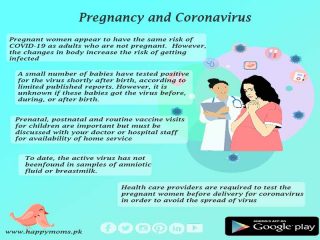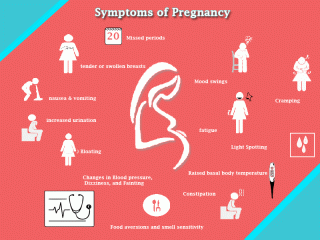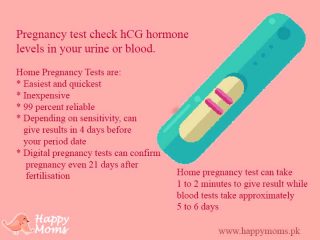
Hearing that “you are pregnant”, can be one of the best feelings. Conception occurs when the female egg merge with the male sperm in a womb. It can occur quickly for a few couples but for few others, it can take a bit longer. 80 to 90 % of the couples conceive within 1 year of trying while remaining have to wait a bit longer or have to go through some treatments and help.
The most important factor to consider in order to get pregnant is to understand your body, your menstrual cycle, ovulation time and the best time to have intercourse in order to get pregnant fast.
How to Increase your chances of getting pregnant?
Menstrual cycle
It is vital to record the number of days of your cycle. Your cycle starts from the first day of period and ends one day before your next period starts, this is normally the same number of days apart and is considered regular. On the other hand, if your cycle length differs every month, your periods may be irregular. By monitoring this information every month, you can better evaluate when your ovulation is expected, that is when your ovaries release the egg. After the egg is released from the ovaries it is fertile for about 12 to 24 hours and sperm can survive for up to 5 days in a woman’s body.
Track ovulation
Another important factor to consider is ovulation, by monitoring ovulation you can determine most fertile days of the month. Most women with regular menstrual cycle ovulate 2 weeks before the first day of periods. For women with irregular periods, it’s difficult to determine the exact ovulation days but generally, it occurs between 12 to 16 days before the first day of the next period.
Few other signs can also help predict the ovulation:
- Ovulation-prediction kits can help guessing the most fertile days.
- Tracking changes in cervical mucus during the cycle, amount and thickness of the cervical mucus changes before ovulation and can help determine the most fertile days.
- An ache in your belly area, feeling more sensual than usual and change in the body temperature are other signs of ovulation.
- Have intercourse every other day during the fertile window
A study published in the journal Fertility and Sterility found that women who regularly observed changes in the consistency of cervical mucus has 2.3 times more probability of getting pregnant over six months. Read our article on ovulation for more information
Basal body temperature
Basal body temperature is another way of predicting when you ovulate. It requires you to record your temperature first thing in the morning after you wake up, it is the temperature when your body is at complete rest. Ovulation may cause the basal body temperature to rise slightly. Take an empty chart with number of days and temperature mentioned on it to record the temperature each month. You can download the blank chart here
It is important to note that every women’s body is different and show signs differently, the chart may not seem to be the same each month. It also varies for women with regular and irregular periods. You should start with the first day of your period and chart the change in temperature each day for the whole month. You will observe the rise in temperature with change in cervical mucus and this will help you determine the most fertile days during your cycle. Mostly the days before the temperature rises are the most fertile ones.
Age and fertility
Female fertility slowly decreases and remains high throughout the 30s. This is due to age-related changes in ovaries causing a decline in egg quality and quantity.
Typically, in the second year, almost half of the partners conceived who do not conceive during the first year of trying. Remember, you have an excellent chance to get pregnant even if you’re late in the 30s. Most of the couples conceive naturally, but if you did not conceive even after trying for one year, you must seek help from a general physician.
If you are over the age of 35 and had been trying to conceive for couple of month with no success, it is suggested to consult a general physician to rule out any problems or the need of a treatment. With age the success rate of IVF and other conception treatments also decreases, so sooner the better.
Along with age as one of the factors, your general health, the age of your partner and the frequency of intercourse among couples play a major role in conceiving.
Men’s fertility:
Overtime male fertility also declines with age once they hit 50s and beyond. Conception with older men increases the risk of miscarriage and complications related to baby health due to changes in sperm quality.
Multivitamin
Experts recommend taking multivitamin, if you are trying to conceive. Multivitamin of 400mg containing folic acid and a B Vitamin. It helps in avoiding birth defects related to brain and spine as the neural tube progresses into the brain and spine 3 to 4 weeks after conceiving, most women do not know by this time that they are pregnant.
Once you are pregnant it’s important to take your folic acid until you are 12 weeks pregnant. Doctors recommend taking 400mcg of folic acid a least one month before you plan to get pregnant in order to avoid birth defects. You can include naturally occurring folic acid by adding certain foods in your diet. Folate (folic acid) is found in many foods which include:
- leafy green vegetables
- beans and pulses
- oranges and orange juice
- chicken and fish
- whole wheat or bran cereals
Health and Food
Healthy diet and fertility are related. You can increase your chances of conceiving by following a healthy, balanced diet along with your partner. Healthy eating involves preparing well-balanced meals from a different and wide range of food groups. You can include following to your diet:
- Vegetables and fruits
- Fresh vegetable and fruit juices (try to limit the intake as juices are high in sugar content), this includes drinks rich in vitamin C that will help absorb many foods especially iron and folate
- Starchy and fiber-rich foods including whole wheat flour, whole grains, bran, rice
- Pulses, lentils, beans, fish, meat, chicken, eggs all contribute protein to your food
- Milk, yogurt, cheese, and other dairy-based foods are rich in calcium, protein and other nutrients and are an important part of a balanced diet
- Increasing iron and folate in your blood for pregnancy is significant, leafy green vegetables, red meat, beans, and pulses are a good source of iron and folic acid
Avoid foods with high sugar and fat content as they can help you feel full but contribute very little to your health. Also, you can limit your caffeine intake, the recommended intake is less than 250mg a day, more reliance on caffeine can affect if you are under treatment for conceiving. It is important to eat healthy before, during and after pregnancy
Weight
Your body mass index (BMI) can help you determine ideal body weight according to your height. Being overweight and underweight both can have effect on your successful pregnancy and conceiving.
Being overweight causes complications and delay for conceiving, also it poses the risk of gestational diabetes, miscarriage and pre-eclampsia. Similarly, women who are underweight have higher risk of premature birth, miscarriage and low birth weight of a baby.
In order to reach an ideal weight, you should consult your physician or nutritionist to advice you about healthy eating and foods which can help you increase your weight to an optimum level. For reducing the weight it’s always good to start losing weight gradually with healthy eating and exercise on regular basis.Being overweight and underweight both can affect the estrogen levels and periods which decreases your chances of conceiving. It’s good to think about your ideal weight before trying to get pregnant in order to avoid any complications.
Exercise:
You can start with simple exercises such as walking, swimming, dancing, cycling which can help your heart and lungs to work out and do not strain other body parts. Yoga, breathing and relaxation exercises, and pelvic floor exercises are also a good idea and can also help you during pregnancy. All of these exercises will help you stay active and strong, and will also aid during your pregnancy and labor. Try to avoid heavy exercises which can have an affect on your body and periods.
All of the above factors can help you get pregnant if followed properly with guidance from your physician or gynecologist. Regular sex about 2 to 3 times a week can increase your chance of getting pregnant. Record your monthly cycle and cervical mucus consistency along with having sex on those fertile days will help you conceive.
Maintaining a healthy diet and weight with regular exercises and intake of multivitamin will improve your odds. Still, if you are not successful for a year or two, do not lose hope and keep trying. If conceiving naturally becomes difficult with no other medical conditions, you can increase your chances through assisted conception techniques and fertility treatment.
When to see your doctor
Evaluation for infertility can be taken if a woman is 35 or older and trying to get pregnant for six months with regular sex. Women under the age of 35 should consult the doctors if she fails to conceive after trying for one year. It is important that both the partners should consult the doctor and go for infertility evaluation.
This article is for informational purposes only, and is not meant to offer medical advice.




